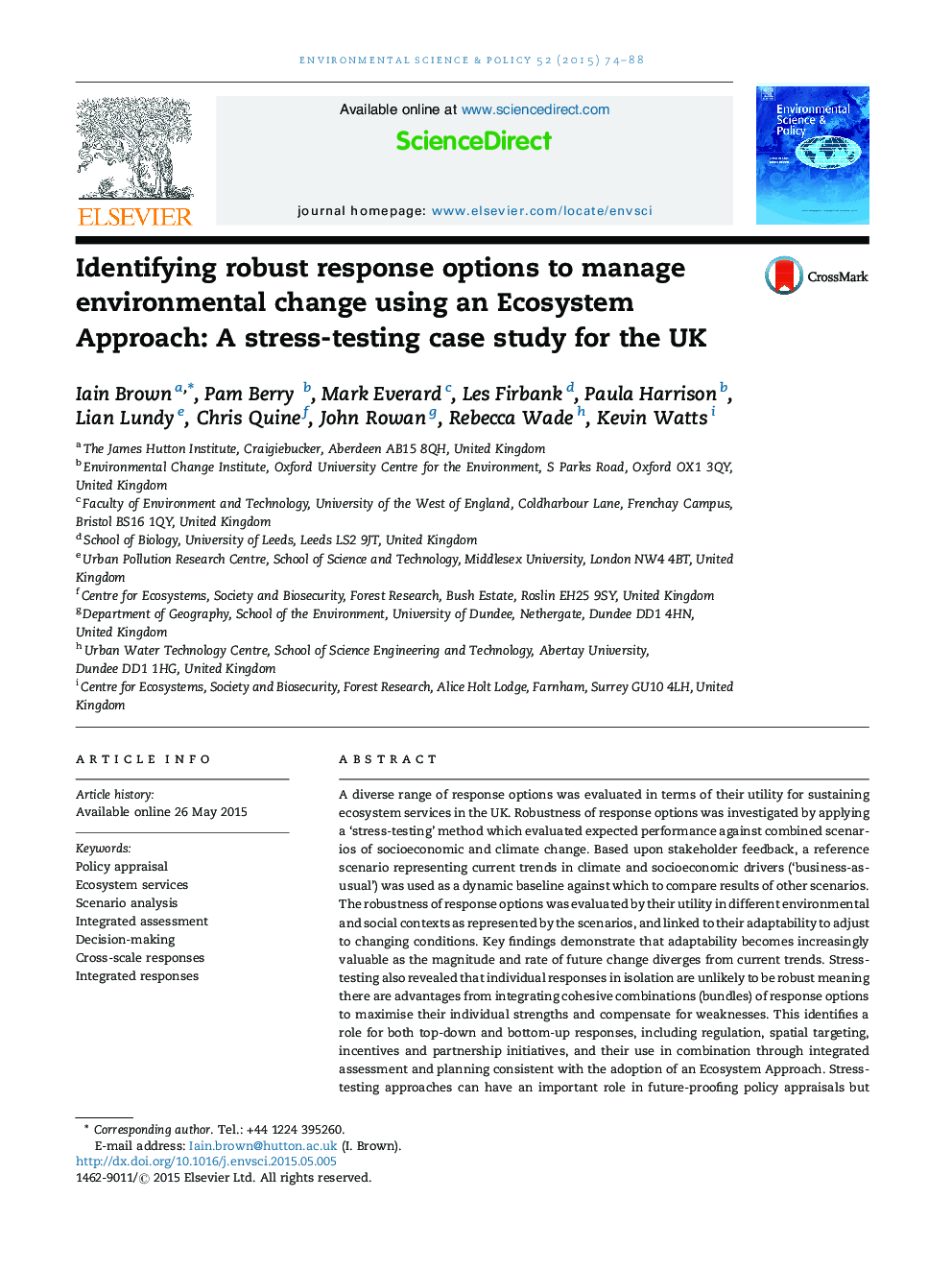| کد مقاله | کد نشریه | سال انتشار | مقاله انگلیسی | نسخه تمام متن |
|---|---|---|---|---|
| 7467207 | 1485054 | 2015 | 15 صفحه PDF | دانلود رایگان |
عنوان انگلیسی مقاله ISI
Identifying robust response options to manage environmental change using an Ecosystem Approach: A stress-testing case study for the UK XXX
دانلود مقاله + سفارش ترجمه
دانلود مقاله ISI انگلیسی
رایگان برای ایرانیان
کلمات کلیدی
موضوعات مرتبط
مهندسی و علوم پایه
مهندسی انرژی
انرژی های تجدید پذیر، توسعه پایدار و محیط زیست
پیش نمایش صفحه اول مقاله

چکیده انگلیسی
A diverse range of response options was evaluated in terms of their utility for sustaining ecosystem services in the UK. Robustness of response options was investigated by applying a 'stress-testing' method which evaluated expected performance against combined scenarios of socioeconomic and climate change. Based upon stakeholder feedback, a reference scenario representing current trends in climate and socioeconomic drivers ('business-as-usual') was used as a dynamic baseline against which to compare results of other scenarios. The robustness of response options was evaluated by their utility in different environmental and social contexts as represented by the scenarios, and linked to their adaptability to adjust to changing conditions. Key findings demonstrate that adaptability becomes increasingly valuable as the magnitude and rate of future change diverges from current trends. Stress-testing also revealed that individual responses in isolation are unlikely to be robust meaning there are advantages from integrating cohesive combinations (bundles) of response options to maximise their individual strengths and compensate for weaknesses. This identifies a role for both top-down and bottom-up responses, including regulation, spatial targeting, incentives and partnership initiatives, and their use in combination through integrated assessment and planning consistent with the adoption of an Ecosystem Approach. Stress-testing approaches can have an important role in future-proofing policy appraisals but important knowledge gaps remain, especially for cultural and supporting ecosystem services. Finally, barriers and enablers to the implementation of more integrated long-term adaptive responses were identified drawing on the '4 Is' (Institutions, Information, Incentives, Identity) conceptual framework. This highlighted the crucial but usually understated role of identity in promoting ownership and uptake of responses.
ناشر
Database: Elsevier - ScienceDirect (ساینس دایرکت)
Journal: Environmental Science & Policy - Volume 52, October 2015, Pages 74-88
Journal: Environmental Science & Policy - Volume 52, October 2015, Pages 74-88
نویسندگان
Iain Brown, Pam Berry, Mark Everard, Les Firbank, Paula Harrison, Lian Lundy, Chris Quine, John Rowan, Rebecca Wade, Kevin Watts,